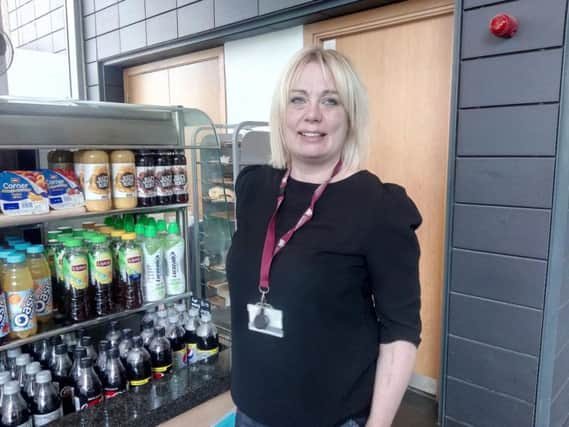Council bans high sugar drinks from its headquarters in a bid to improve health


The council’s public health department is involved in work to combat smoking, excessive drinking and poor diets in the town, with changing food habits regarded by staff as the most challenging of the three to change.
But it is recognised modern society is an “obesogenic environment” and the council is launching a strategy aimed at bringing about major change – starting with itself.
Advertisement
Hide AdAdvertisement
Hide AdThat means in addition to cutting out full sugar drinks and removing vending machines, the firm which operates the cafe at its Westgate Plaza headquarters now gives a calorific value on the sandwiches it sells, to help customers keep track on their intake.
Council staff are also working with prospective tenants at the new ‘Market Kitchen’ food hall in the Glass Works shopping centre currently under construction in the town centre, with the objective that they will provide a similar service.
Elsewhere in the town, take-away food outlets are also being encouraged to offer ‘healthier’ meal choices, an acceptance that convenience food is one of today’s social habits, but one where consumers can still be offered a choice on health.
The council is currently drawing up a food plan, which is expected to be adopted later in the year.
Advertisement
Hide AdAdvertisement
Hide AdDiane Lee, the council’s head of public health, said: “We are looking at the big things we know will make a difference and want to make Barnsley a sugar free town.”
The council had worked with its own catering supplier to cut out sugary drinks and provide nutritional information on sandwiches, she said: “It would be great if we could get other people to do that, to make sure the labelling lets people know how many calories they are consuming.
“Some of my colleagues are working with future providers for the Market Kitchen, looking at having the calories that food contains on display.
“Our long term goal is all food sold will have the calories it contains displayed, every sandwich in every shop.
Advertisement
Hide AdAdvertisement
Hide Ad“That is a long way off, but it is about giving people the information to lower their sugar and calorie intake.”
Some simple steps are also being taken, such as encouraging take-aways to use salt shakers with smaller holes, to reduce the quantities dispensed and to try to ensure the least healthy fats are not used for fried dishes.
Policies on encouraging healthier eating appear to be paying off already, with the latest national statistics showing Barnsley has fewer overweight children than average figures.
At reception age, 81 per cent were shown to be a healthy weight, with 66.6 per cent at year six, both figures “significantly higher than regional and national averages”, according to council documents.
Advertisement
Hide AdAdvertisement
Hide AdPublic health staff will be monitoring future results, in the hope that the current figures are the start of a positive trend.
Numbers of children who were recorded as underweight were higher than average, however, with 2.2 per cent at reception age and 2.3 per cent in year six weighing less than expected.
As a result, work is being done to try to maximise the nutritional value of school meals and also to address the issue of ‘holiday hunger’, a situation which has been revealed nationally where children from impoverished backgrounds fail to get an adequate diet when the presence of school dinners is removed.